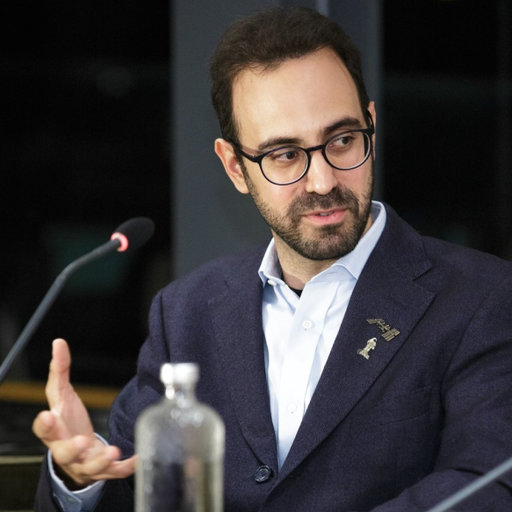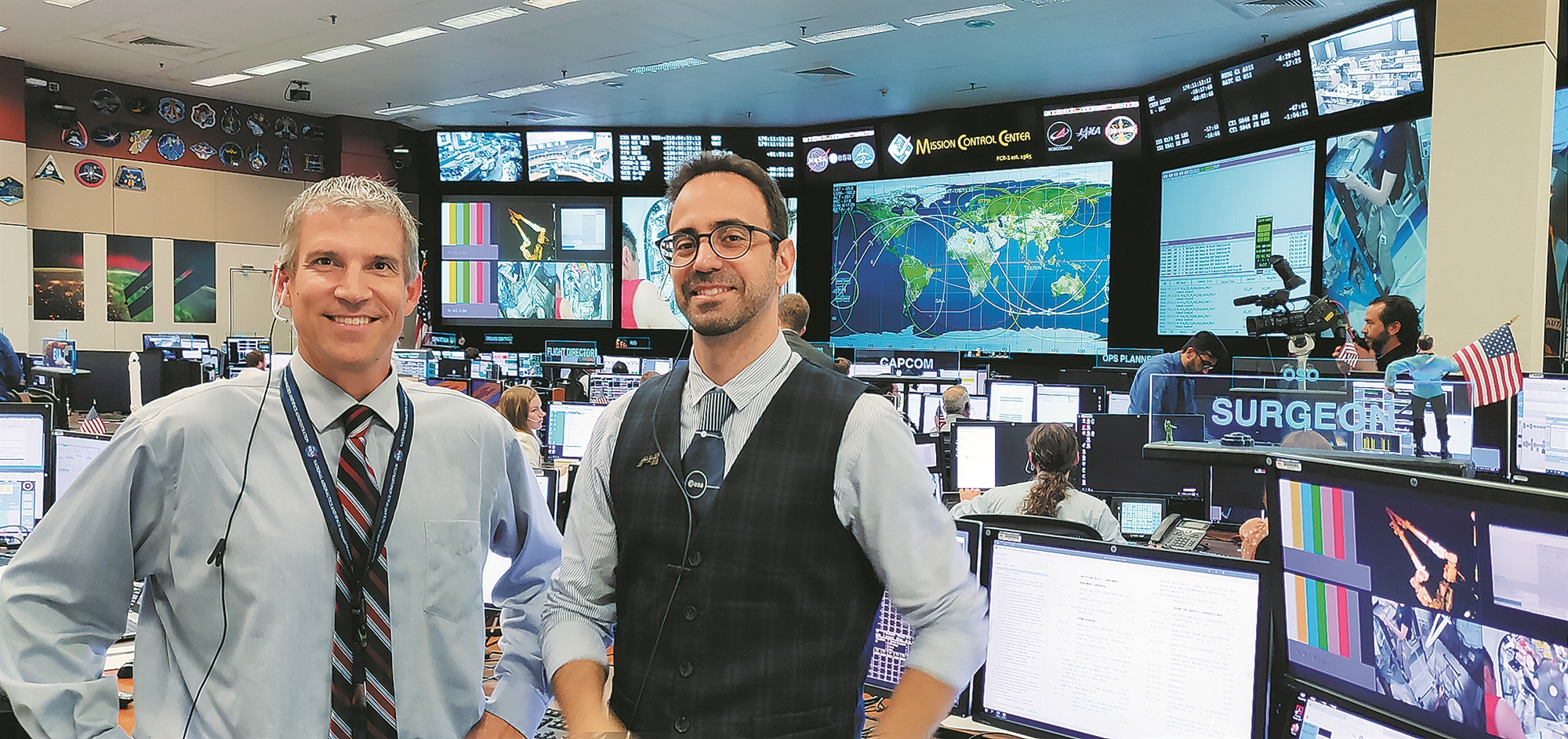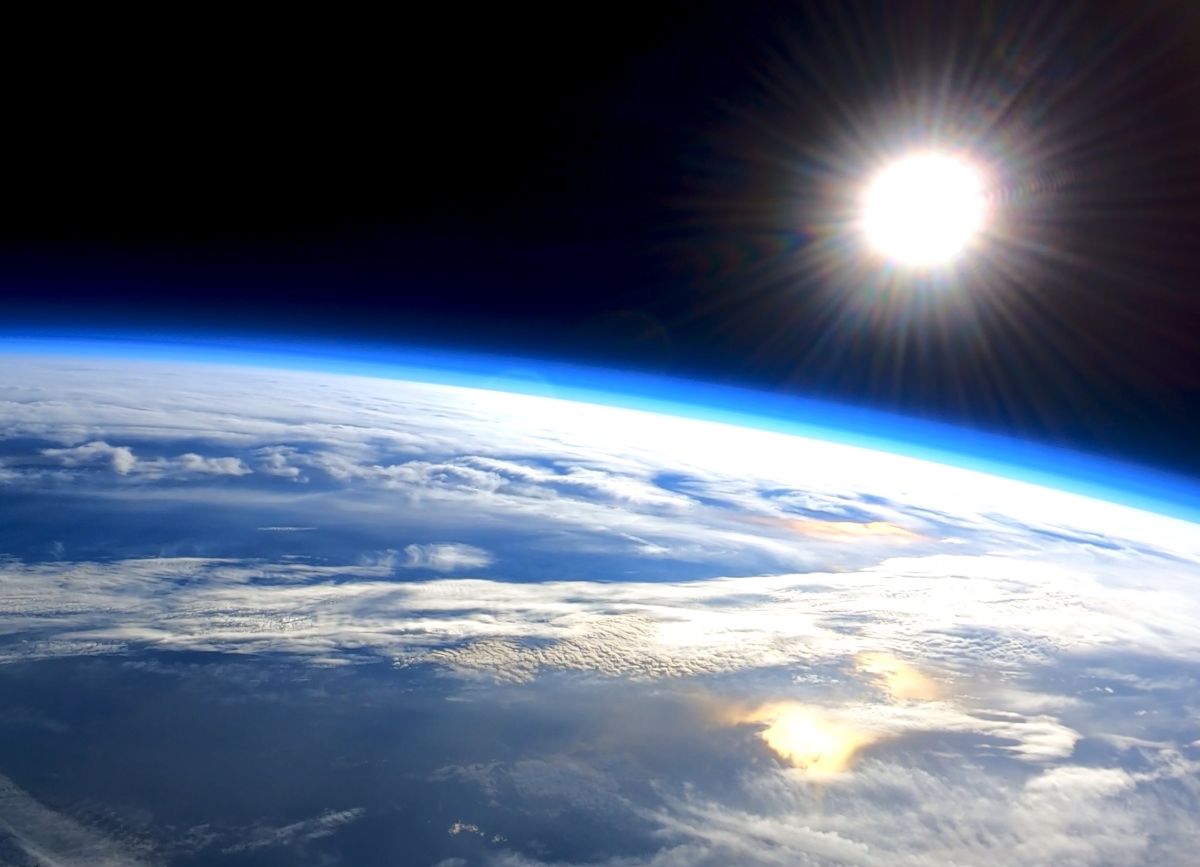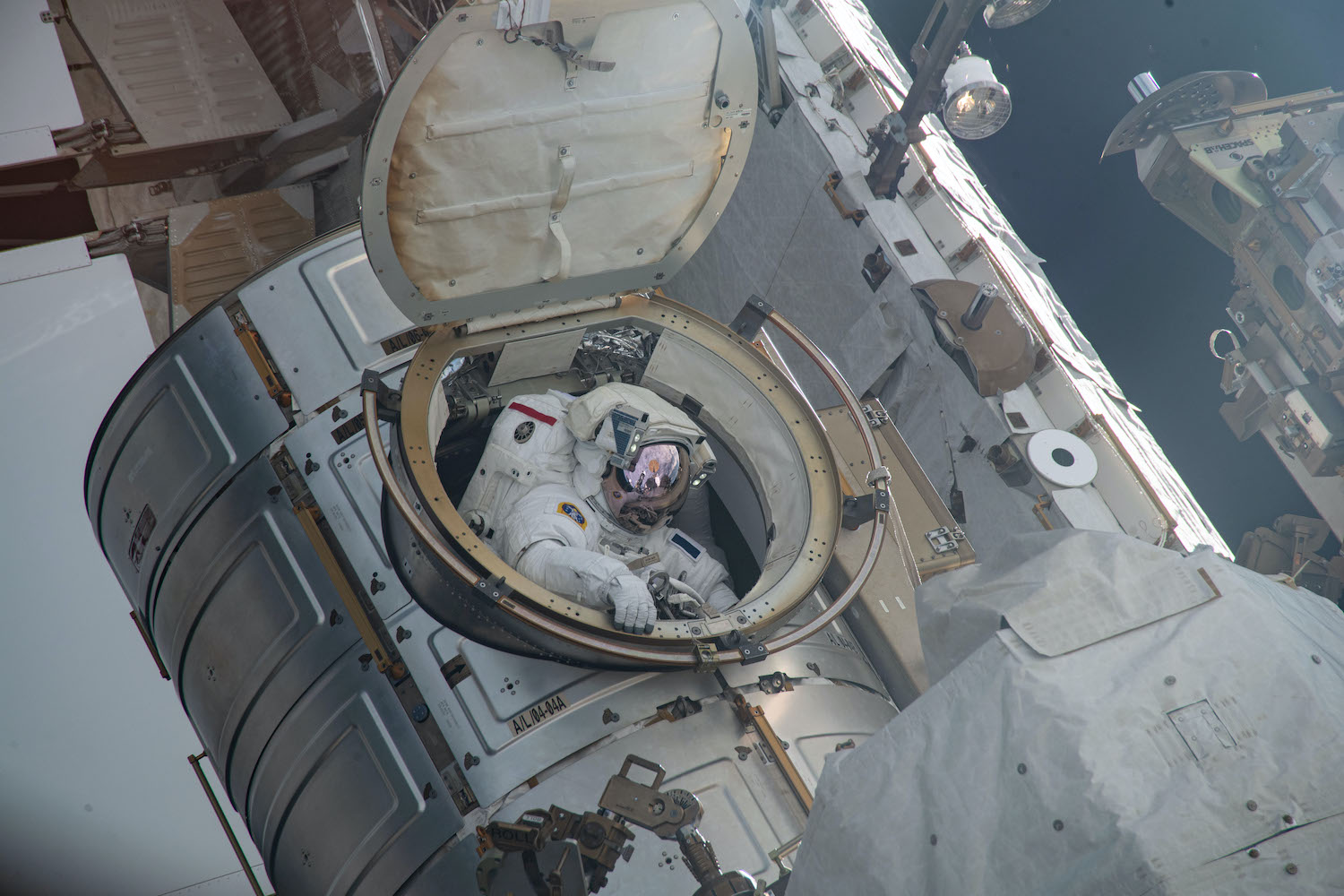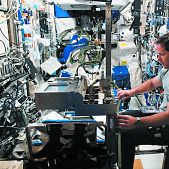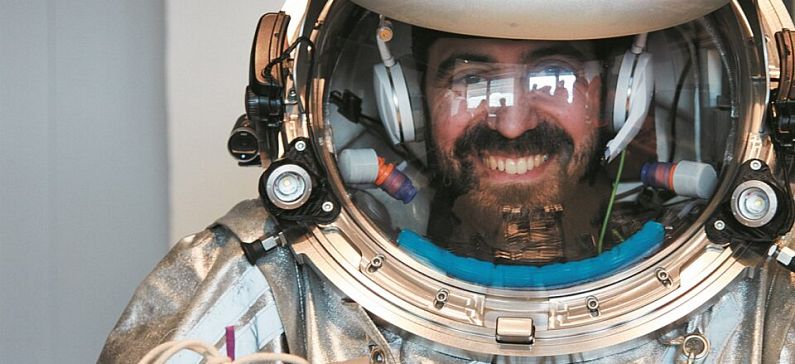
The Doctor of Astronauts
For many, medicine is limited to the earth but also to those who live on it, but in the case of Adrianos Golemis his science reaches the point where he belongs to the medical team of the European Space Agency and monitors the health of astronauts in real time. In September, French astronaut Tomas Peschke made another spacewalk. He had to continue the work for the installation of solar panels. At the mission control center in Houston, Hadrian Golemis was one of his liaisons to Earth, his personal physician. “It is a very intense experience to see the medical data directly from the astronaut uniform and the movement from the cameras and it is at the same time a great responsibility,” he said in an interview. “You have to have the right dose of stress and the awareness that you are called to make decisions in a short time. “Ηe watched him in every swing of his spacewalk, staring for almost seven hours at the data reaching his screens. He monitored his heart rate, oxygen and carbon dioxide levels in his helmet and assessed the slightest fluctuation in his body temperature. He was even interested in the rate of metabolism, how fast the astronaut was consuming energy. Nothing should be left to chance. When someone works on the backbone of the International Space Station you can not risk overwork you must have fourteen eyes for each possible scenario.
In 2018, Mr. Golemis started working in the medical team of the European Space Agency (ESA) and is based in Cologne. In 2019, as soon as he completed his training, he took over as a second doctor in the mission of the Italian astronaut Luca Parmitano and now he has the role of the first doctor in the mission of the 43-year-old Peske, which is still in progress. “Aerospace Medicine is not a recognized specialty in most European countries. “To find someone in the European Space Agency requires a combination of effort and luck, because there is no pre-determined path,” he says.
However, his own personal journey started from the Aristotle University of Thessaloniki where he studied Medicine and then continued his postgraduate studies at the International Space University in Strasbourg. In 2014 he got a first taste of isolation conditions reminiscent of a space mission, spending a year at the Concordia base in Antarctica. In 2018 he responded to the call for volunteers from the Austrian Space Forum and was selected in the final group of candidates for an experiment in the Negev desert of Israel. Once he reached the final six he would stay with the other members for about a month in a dome and try on an original space suit, theoretically simulating the cohabitation conditions that a manned mission to Mars might encounter.
Adrianos Golemis (right) has been at NASA’s Houston control center, where he and his colleague Steve Piper have been monitoring the departure of astronaut Thomas Peske into space.
Pesce began his journey to the International Space Station in April 2021, but his medical follow-up had already begun in February 2020. “We are trying to make sure that the astronaut is in good health and that it is unlikely that he will develop any illness or disease or injury before it flies “, says Mr. Golemis. For each astronaut is prepared, according to his needs, a personalized box of medicines that he will carry on his journey. “There are diseases that we expect to occur when someone is in space. In the first days, due to lack of gravity, there may be difficulty in orientation. “The body loses a little, because it no longer has the floor as a point of reference, and this can cause from vomiting to headaches,” he explains.
Even the distribution of blood is affected by the lack of gravity. “The human body is made so that the blood is evenly distributed. “When there is no gravity, more blood rises to the head, which is why sometimes in the first days we see astronauts having a swollen face”, says Mr. Golemis.
Astronaut Thomas Peske
In an emergency
For the same reason, in the event of an emergency, if cardiopulmonary resuscitation is required, the movements that follow are not reminiscent of what could have happened on Earth. As the Greek doctor of the astronauts explains, the rescuer should step on the opposite wall of the space station, straighten his legs and press the patient’s chest with outstretched arms. Any conventional massage effort will not work, as long as they are in orbit they can not take advantage of their body weight.
So far Mr. Golemis has not been called to manage an extreme event but his experience always makes him think of every possible scenario. At ESA, in collaboration with NASA, they are always prepared for the unexpected. Even in the event of an allergic shock, they will direct other astronauts from Earth to save them.
The effects of space on the body
Unless something changes in the programming, the French astronaut Tomas Pescé is expected to return from the International Space Station in a few days. All these months she had at least one direct contact with Adrianos Golemis per week to examine him clinically from afar. “Our role is to see and evaluate the results of preventive medical tests performed in orbit and to give instructions in case of any discomfort,” says the 34-year-old doctor. “At the same time, we take care of other situations related to the mental sphere. It is not viable to constantly ask an astronaut, who has been isolated in space for so many months, to do a lot of work in one day. “We play a role of protector so that the astronaut is not overloaded beyond certain limits that may pose a risk to his health.”
Apart from him, the medical staff also includes a psychologist, biomedical technology engineers and specialists in physical exercise and physiotherapy. During the mission they can check the astronaut’s hematocrit, while two or three times a semester (usually during a mission) they perform fatigue tests. “In space, muscle mass and bone density decrease, as does the ability of the heart sometimes,” explains Mr. Golemis.
Astronauts are also asked to have their eyes examined with ultrasound every six months, as they are more likely to develop a syndrome of the ocular nervous system called SANS (Spaceflight Associated Neuro-Ocular Syndrome). After a long stay in space and a lack of gravity, some astronauts find that they face vision problems, which may subside after returning to Earth. For some, however, they may persist.
Tomas Peschke on his way out for another space walk.
Radiation
The effect of space on the human body is not limited there. Those who monitor the health of astronauts also take care of their exposure to radiation. “On Earth, due to the magnetic field and the atmosphere, we are quite protected from radiation,” says Mr. Golemis. “But when one is at an altitude of about 400 kilometers, such as the International Space Station, one is exposed to more radiation. And after so many months in orbit it collects, accumulates radiation. To prevent this, we measure the cumulative radiation and every astronaut in his entire career must not exceed a limit, in order to avoid the risk of carcinogenesis and heart disease in the future.
A colleague of Mr. Golemis will go to the place where Peske is expected to land in a few days. The Greek doctor will wait for the arrival of the astronaut in Houston and from there he will go with him to Cologne with a specially designed plane that also has medical equipment. The recovery period will follow.
“It usually takes a minimum of three or four weeks for an astronaut to adapt to life on Earth again,” says Golemis. “The transition is not so easy and somehow, to a small degree, I experienced it after my return from Antarctica. “We have to ensure that an astronaut returning from space will mainly have time for his own people, it is very important.”
The issue of astronauts’ communication with their families has greatly trained their medical staff due to the COVID-19 pandemic. Especially before the vaccines were released, they always tried to weigh the risk of infection with the new coronavirus and judge whether an astronaut could visit his family during the break of his preparation for the mission.
Mr. Golemis, however, envisions his own space walks. He has already applied to the European Space Agency’s recent call for young astronauts. A total of over 22,000 people have responded, of which 280 from Greece. “I would definitely like to be in their place,” he says.
Adrianos Golemis is the living example of a man who studied in Greece and crossed its borders with his mind and his hard work.

